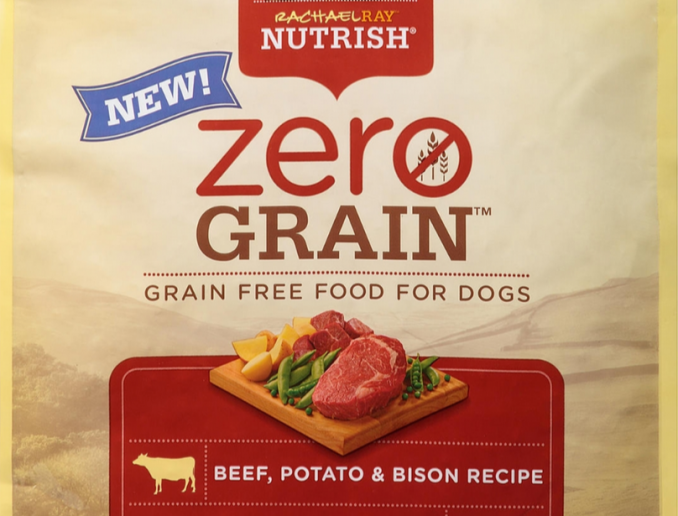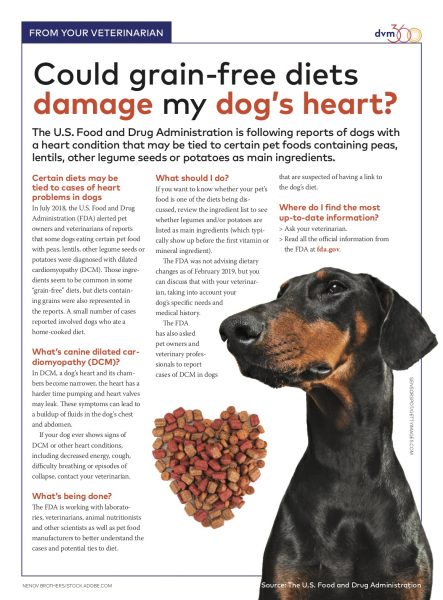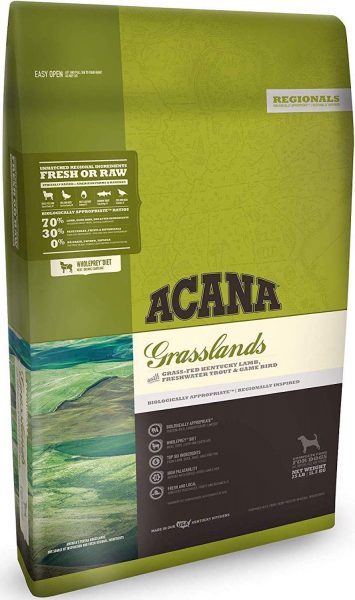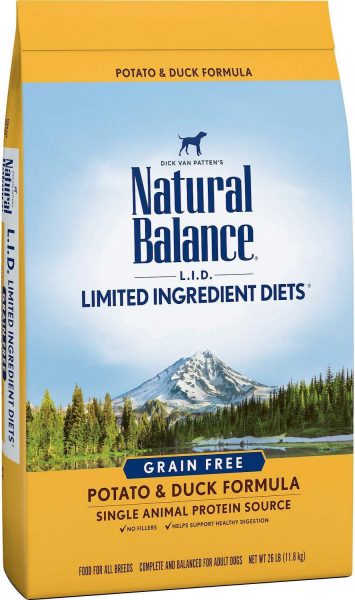
The issue around grain-free pet foods has been growing this year, with scientists studying the effects of certain diets that may be linked to fatal canine heart disease. While this information is still under review, we thought it was important to share the data so you can be aware and make informed decisions about your pet’s diet and overall health.
The FDA has been collecting data on the potential connection between certain diets linked to 515 cases of the disease. Canine Dilated Cardiomyopathy, a disease of a dog’s heart muscle, can often result in congestive heart failure. We typically see larger breeds such as Dobermans and Great Danes affected by DCM, however many cases are now showing in smaller breeds, which suggests a lack of a genetic connection.
The agency defines “grain-free” as not containing corn, soy, wheat, rice, barley or other grains. Of the dog-food brands on the FDA’s list, 91% of the products investigated were labelled grain-free.

In its latest report, the FDA said it does not yet know how certain diets may be associated with DCM in dogs. The agency is encouraging pet owners to work directly with veterinarians or board-certified veterinary nutritionists to choose an appropriate diet for their pets. Pet owners should continue to report cases of dogs and cats with DCM that could be linked to diet. To report, use the online Safety Reporting Portal.
To summarize, this serves to illustrate the importance of feeding properly researched and well-balanced diets. Looking for the AAFCO statement, and ensuring the food has undergone feeding trials, can help in making educated decisions. Unfortunately, there are still no regulations in Canada within the pet food industry, meaning new companies can pop up all the time, so it is crucial that you be the advocate for your pet.
If you are feeding one of these brands to your pet, simply check to see if it is a “grain-free” version, and if so, look for another option. If you have any further questions or concerns, we are simply a phone call away. Feel free to contact us at 905-771-9855 to speak with one of our staff members, we are always here for you and your pet.

Click to hear our veterinarian’s top tips on choosing the right food for your pet.


